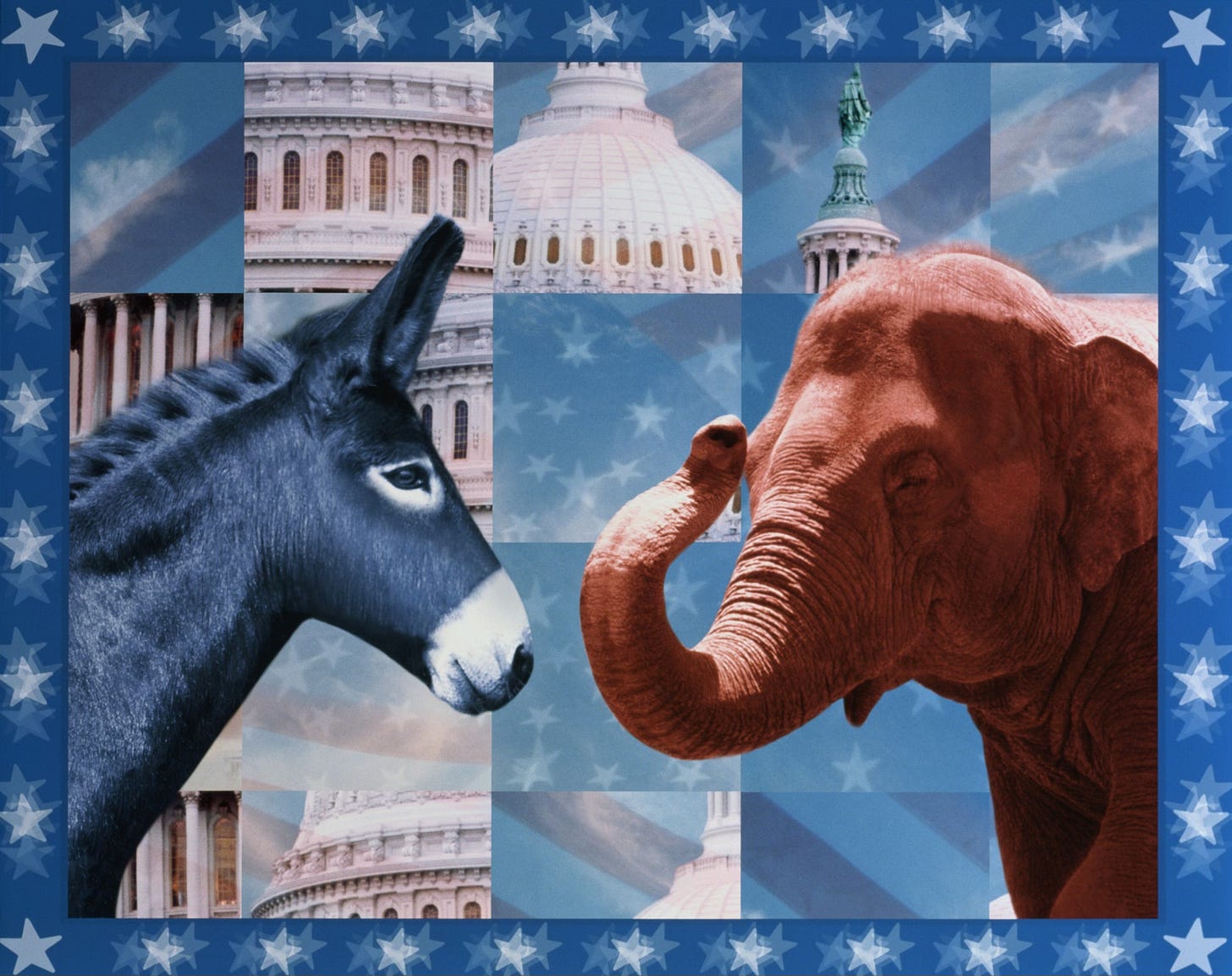
If you want to understand why American politics seems so upside down these days, it helps to first recognize that both Democrats and Republicans labor under the same two delusions: (1) that ideological minority factions of their parties constitute electoral majorities; and (2) that one-party rule in blue or red localities amounts to a national consensus.
Rather than pursuing durable national majorities from the center-left and center-right, both parties have increasingly adopted the mistaken strategies of strident yet electorally insufficient minority factions that staff their parties, feed their coffers, fuel their activist campaigns, and wage nonstop partisan war online on their behalf.
For Democrats, an extremely well-funded outside progressive infrastructure, what John B. Judis and Ruy Teixeira call the “shadow party,” constantly promotes out of the mainstream ideas on many pressing issues facing the country, including: open asylum on immigration, decriminalization and non-enforcement on public safety, rapid elimination of fossil fuels on climate, the disavowal of testing standards and color blindness in education, and anti-Israel and anti-military policies on national security.
Democrats need to accept that majorities of voters reject the positions of the most extreme activists shaping the party’s agenda and brand.
Joe Biden in spirit and temperament is obviously not from this strident minority faction—Biden is an old-school Catholic Democrat from Scranton, not an intersectional leftist. But his approach as party leader over the past few years, and through the decisions of his administration’s more progressive staff members, has been to accommodate much of this left-wing agitation in the name of party comity and conciliation. Now facing dwindling poll numbers and a formidable rematch against Donald Trump, Biden can’t afford any more ideological pandering and needs to differentiate himself from the far left while stamping Democrats with his more moderate brand.
For Republicans, the iron grip of Trump has led the party to indulge equally radical policy ideas that most voters do not accept, including: mass deportation, a national abortion ban, further tax cuts for the rich, a 10 percent tariff on all imported goods, rejection of nearly all renewable energy efforts, exiting NATO, and attacking the funding of U.S. allies trying to protect themselves from thugs and terrorists.
Republican elites seem to live in an even bigger bubble than Democrats these days, pretending that Americans across the nation are enraptured by Trump’s weird pronouncements about the 2020 election and his various indictments on his social media platform Truth, his coddling of dictators like Putin, and his constant fulminations against democratic institutions and basic bipartisan governance like the Senate border deal.
In theory, Trump could temper his ways and promote more conservative yet still popular ideas on restricting immigration, eliminating regulations that hinder the economy, protecting religious liberty, or promoting parental rights in education. But this would require him to be a totally different person. As it stands, only diehard ideologues on the right, or those in states with no real partisan opposition, believe that Trump’s radical policy ideas and his attacks on the American order constitute mainstream, majoritarian positions.
The closeness of the 2024 race makes it even less likely that either party will mend its ways anytime soon. One of the two candidates will win the election—most likely by a very small margin in a handful of states—and then the usual suspects on the ideological extreme of the winning side will claim ultimate victory and vindication for their approach while the activists on the losing side will say they should have been listened to more closely.
Self-reflection will not be found in either party after another brutal round of Biden vs. Trump.
The 2024 election unfortunately will not solve the problem of how a country as divided as ours can find a more sensible and less bombastic method of politics to pursue. But it is worth a shot.
Whichever political party figures out first how to capture and hold the broad center will be well placed for more durable governing majorities. And it starts by recognizing that loud minorities do not equal a majority and that genuine coalition politics requires building from the center outward—not browbeating from the extremes inward.



